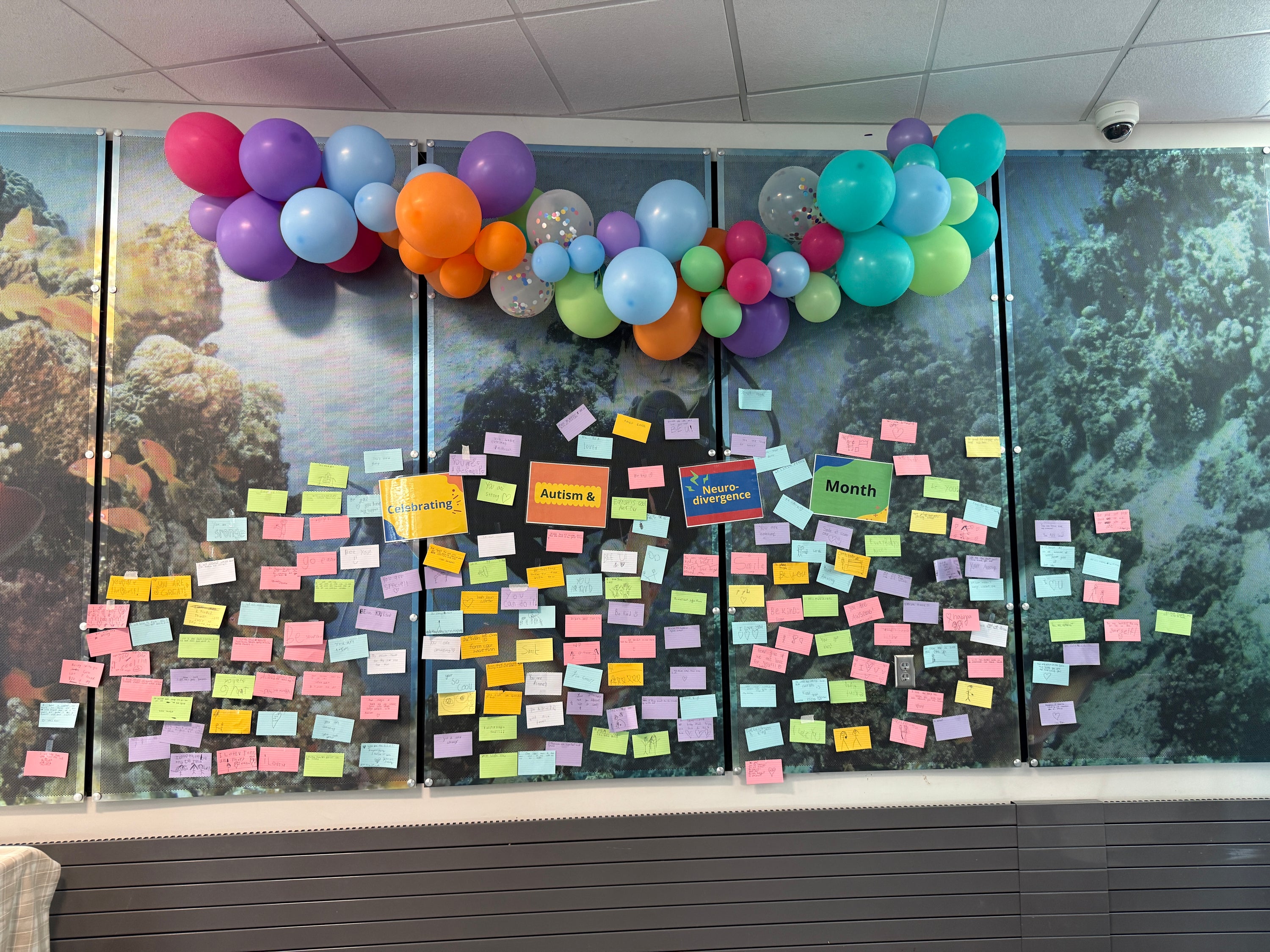How to Start Mental Health Awareness Week at Your School
(or in Your Home)

The Theme: Belonging Begins With Us
Everything we planned tied back to this message. The goal wasn’t perfection—it was connection.
Each day, students:
- Learned about inclusion and neurodiversity
- Practiced ways to handle big emotions
- Talked about how to ask for help
- Saw messages of encouragement everywhere they looked
A Simple Daily Plan
-

Monday: Disability Inclusion
Monday: Disability Inclusion
Focus: What is a disability, and how can we be more inclusive?
In Class:
- Use the provided PDF to guide a short conversation that fits your class
- Encourage students to read the disability posters during lunch
- Students write/draw a note to someone they love with a disability
At Lunch: Posters and looping video about inclusion
-

Tuesday: Autism Acceptance
Focus: Promoting understanding and acceptance of autistic students
In Class:
- Read a book from the neurodiversity book list
- Discuss kindness and inclusion
- Students decorate a card with how they’ll show acceptance and tape it to the celebration banner at lunch
At Lunch: Posters, looping video, balloon arch, banner display
Goodie Bags: Students who visit the resource room will receive a sensory-friendly bag (Fly High pass, fidget, snack, sticker). Teachers with autistic students not visiting the room can request a bag in advance.
Dress-Up: Wear gold or bright colors to show support
-

Wednesday: Learning to Regulate
Focus: Recognizing emotions and using tools to stay in control
In Class:
- Talk about how we recognize feelings and use regulation tools
- Revisit or create a calm corner
- Discuss how to kindly support classmates
At Lunch: Slideshow with visuals of regulation tools (Zones board, Spot the Feelings, etc.)
-

Thursday: Mental Health Matters
Focus: Exploring ADHD, anxiety, depression, and ODD
In Class:
- Brief discussion on what mental health means
- Students draw/write one way they care for their mental wellness at school (deep breathing, talking to a teacher, etc.)
- Optional: Encourage students to participate in a kindness message exchange
At Lunch: Posters, video playlist, spinning question wheels, fidget and sticker prizes
-

Friday: Prioritizing Wellness
Focus: Knowing when and how to ask for help
In Class:
- Normalize that everyone needs help sometimes
- Talk about where students can go and who they can talk to for support
At Lunch: Community resource table with flyers from NAMI and Utah Parent Center
Assemblies:
- K–3rd: Guest author read-aloud + feelings talk
- 4th–6th: Speaker on belonging, loneliness, and emotional wellness
-

What Made It Work
Teacher Supply Bags – Delivered Monday morning with everything needed
Consistent Posters & Visuals – Made the school feel unified
Lunchroom Themes – Posters, videos, and hands-on stations
Daily Themes – Focused, doable, and inclusive
Volunteer Support – Helped with lunch rotations, regulation stations, and assembly setup
Free Printables & Templates
Want to do this too? You don’t need to reinvent the wheel.
You Can Do This
You don’t need a big budget, a committee, or perfect execution.Start with one simple day. One hallway poster. One read-aloud. One note of encouragement. Because when kids feel like they belong, everything changes. Belonging really does begin with us.





